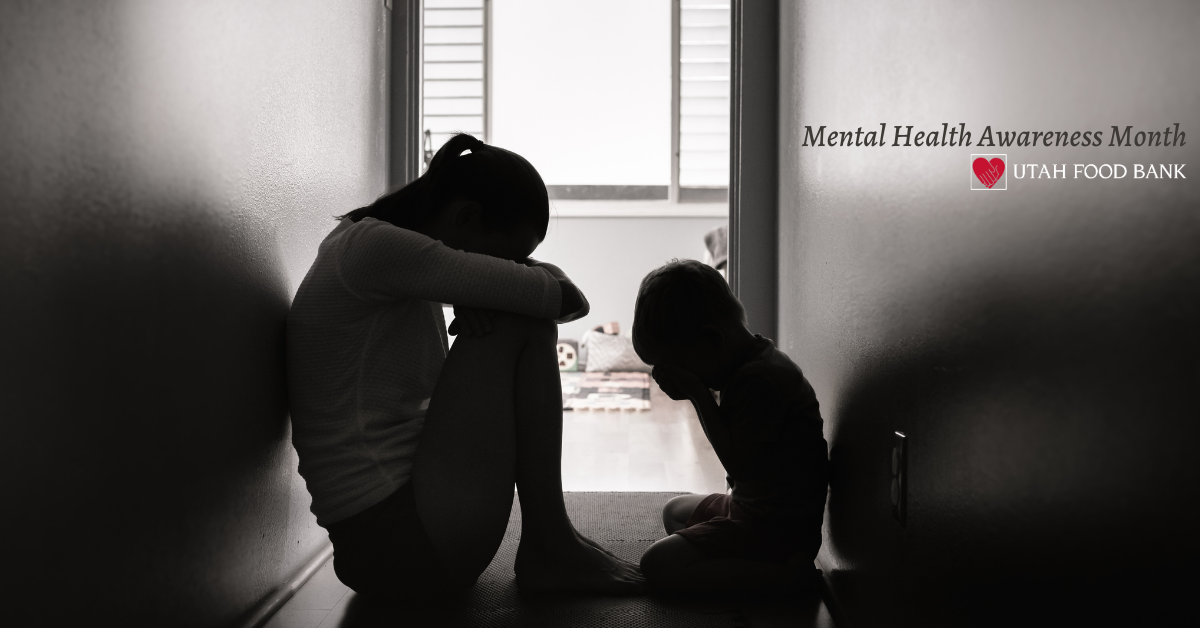Hunger could happen to any of us. May is Mental Health Awareness Month, so it is important to think about the important role food plays in not only our physical health but our mental health as well.
In Utah, 289,000 of our neighbors don’t always know where their next meal will come from. Going hungry doesn’t just hurt your stomach; it hurts every aspect of your life. In addition to the negative impact on physical health, food insecurity is associated with cognitive problems, behavioral problems, aggression, anxiety, depression, and even suicidal thoughts.
Numbers and data represent only a fraction of our awareness. The need for humanity and compassion can best be felt through these powerful words of a former client:
“Food insecurity is lying awake and gratefully watching 11:59 become tomorrow because you know that tomorrow is one day closer to payday and groceries, and it’s remaining sleepless because you’re still not sure how you’ll pay for both groceries and bills.
I have felt my place in the world come into sharp focus in the form of an empty fridge. I have second-guessed life decisions while examining the goopy lid of a half-empty ketchup bottle. I have regretted little routine decisions as I exhumed the remains of a moldy tub of leftover take-out rice. During a few brief periods of my adult life, I have felt the weight of my inability to fill one of the most basic and essential duties of motherhood. No failure has ever struck so deep.”
When you can feed yourself and your loved ones, you are in a better place to cope with other mental health challenges. If you are struggling with food insecurity, please know you don’t have to fight it alone. Utah Food Bank is here to help. Click here to learn about the resources available to you, or call 2-1-1 for services in your area.
If you would like to join us in fighting hunger and making Utah a healthier, happier place, click here to donate now.
